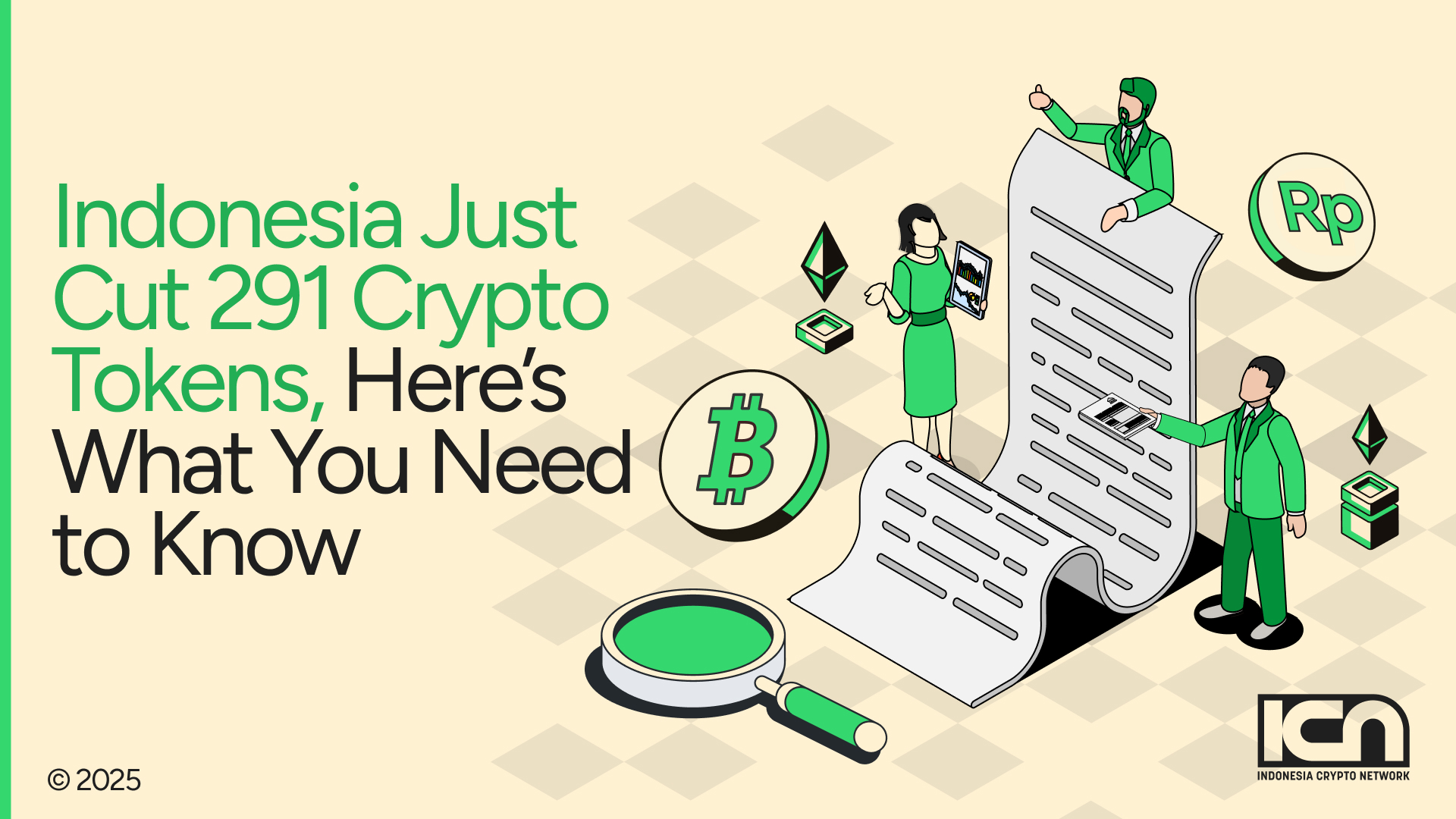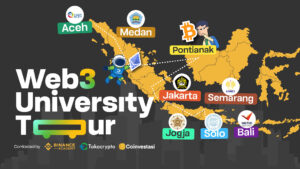Indonesia’s digital asset landscape is entering a new phase. On June 23, 2025, PT Central Finansial X (CFX)—the first officially registered crypto exchange in the country—issued a new decree (CFX/DIR-SK/006/VI/2025), updating the official list of tradable crypto assets. The number of legal tokens has dropped significantly from 1,444 to 1,153, meaning 291 tokens have been removed from the whitelist.
This change reflects the country’s increasing regulatory maturity and its intent to protect retail investors while maintaining a credible market. The update follows Indonesia’s Financial Services Authority (OJK) Regulation No. 27/2024, which grants CFX the authority to evaluate and curate a list of tradable crypto assets based on strict criteria like transparency, utility, community support, and blockchain accessibility.
In line with this regulation, CFX is required to conduct regular assessments through its Subcommittee for Crypto Asset Evaluation. The outcome of this latest review not only removed hundreds of tokens, but also replaced the previous whitelist published in April 2025. According to CFX CEO Subani, this rigorous process is not a step backward but a precautionary measure to preserve market integrity and safeguard consumer interests.
“Evaluating tradable tokens is part of CFX’s responsibility to protect consumers. The assets that no longer met our standards had to be removed from the list,” said Subani in a statement.
This update demonstrates the government’s efforts to foster a more transparent and stable crypto environment in Indonesia, especially as OJK prepares to take over full regulatory oversight from Bappebti in 2025.
Read more: Indonesia’s Crypto Futures Transactions Hit Rp24.95 Trillion in Just Five Months
Main Changes in the Indonesia Token List
Despite the reduction, many major tokens remain on the legal list. These include global favorites such as Bitcoin (BTC), Ethereum (ETH), Solana (SOL), XRP, and USDT. Prominent altcoins like Chainlink (LINK), Tron (TRON), Toncoin (TON), and Cardano (ADA) continue to be recognized.
Interestingly, meme coins with strong communities also retain their place—including Dogecoin (DOGE), Shiba Inu (SHIB), Floki (FLOKI), Pepe (PEPE), and politically themed tokens like Official Trump (TRUMP) and Official Melania (MELANIA).
However, a number of tokens failed to meet the updated standards. Some of the removed tokens include:
- Reach (REACH)
- AidCoin (AID)
- Aleo (ALEO)
- Altava (TAVA)
- Bee Token (BEE)
- Mirror Protocol (MIR)
- Camelot Token (GRAIL)
- And many others
The reasons for delisting were not detailed individually, but CFX made it clear that evaluation covers multiple aspects—such as project viability, blockchain transparency, transaction volume, and ongoing community support.
In addition to removals, 20 tokens underwent rebranding and received updated names and tickers. For example:
- Maker (MKR) is now Sky (SKY)
- Dai (DAI) is now USDS
- Fantom (FTM) has become Sonic (S)
- Maple (MPL) has been rebranded as Maple Finance (SYRUP)
These changes reflect project strategy shifts and are acknowledged in the updated list, allowing for continued trading under the new identities.
Read more: How to Strategically Enter Indonesia’s Crypto Market via OJK Sandbox
What This Means for the Crypto Industry in Indonesia
While the delisting of 291 tokens may appear drastic, many in the industry see this as a positive move. Tokocrypto CEO, Calvin Kizana, welcomed the update, stating that regular evaluations are necessary to maintain market credibility.
“We appreciate the proactive approach taken by the exchange in reviewing crypto assets. It ensures that only credible and high-potential assets are allowed to be traded in Indonesia,” said Calvin.
He also emphasized that none of the removed tokens were listed on Tokocrypto, and the platform has already added 11 newly whitelisted tokens including USD1, SYRUP, NXPC, and HAEDAL in response to the new list. These tokens were selected based on their technological innovation and strong transactional potential.
More importantly, Calvin highlighted the need for industry-regulator collaboration. He noted that exchanges have room to formally propose additions or removals through official channels. This mechanism opens the door for dialogue and continuous adaptation.
“This collaboration is vital for building a sustainable crypto industry in Indonesia. It encourages broader adoption, attracts new investors, and creates new opportunities for local blockchain development,” said Calvin.
The selective but innovation-friendly nature of this update signals that Indonesia’s crypto market is not only evolving but becoming more strategic. A well-curated token list, combined with openness to innovation, can accelerate the growth of a safer, more competitive digital asset economy in the country.
For companies looking to enter the Indonesian market, staying compliant is no longer just good practice—it’s essential. With regulatory clarity improving and regular updates becoming the norm, navigating Indonesia’s crypto space requires deep local insight and the right partners.
ICN works directly with regulators, media, and industry players to guide your entry into Indonesia’s growing crypto economy. Let’s talk. Start Growing with ICN.




